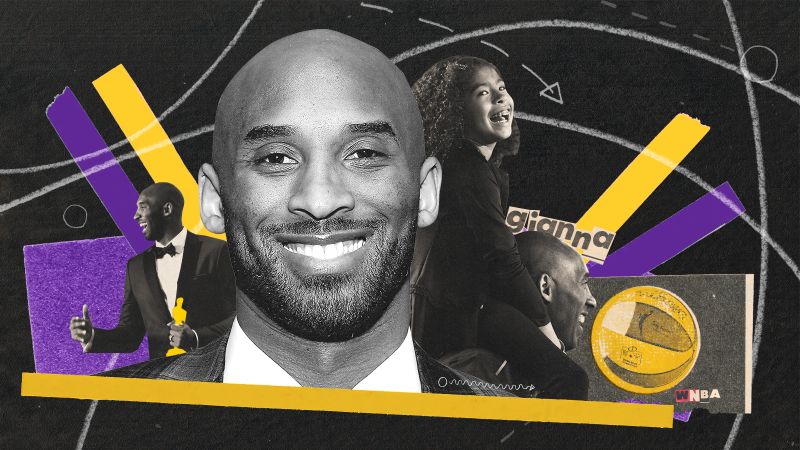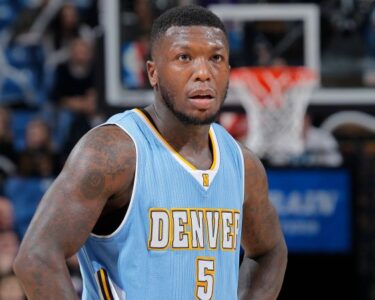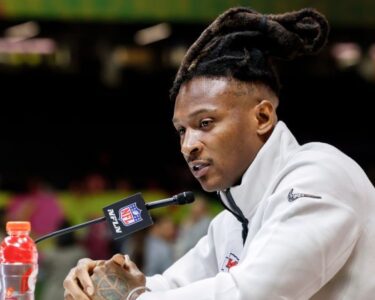Editor’s Note: A new series “Kobe: The Making of a Legend” traces the story of Kobe Bryant from his childhood in Italy to his athletic superstardom and provides an intimate look at his post-NBA aspirations as a storyteller and as a father. The three-part series resumes Saturday at 9 p.m. ET/PT.
Retirement is a daunting prospect for every professional athlete. It’s even more panic-inducing if you’ve devoted 20-plus years of your life to little else but perfecting your craft, ruthlessly pursuing titles and accolades.
That seemed to be the case for Kobe Bryant in the final years of his trophy-laden NBA career, his body ravaged by a series of injuries. For a player who, by his own admission, had given full-blooded, heart-and-soul commitment to the game of basketball, a future beyond the hardwood seemed unthinkable but inevitable.
“For a lot of writers at the time, Kobe was the one individual athlete that we worried about the most, about what was going to happen to his career after basketball was over,” sports journalist Scoop Jackson tells CNN Sport. “He had made this game his entire life, and he was very open about that: nothing else means more to me than this.”
But five years on from his untimely death at the age of 41, Bryant’s post-basketball career seems almost as remarkable as everything he achieved during his 20 seasons with the Los Angeles Lakers – five championship rings, 18 All-Star appearances, the 2007-08 Most Valuable Player (MVP) award and two Finals MVP awards.
Impossible to foresee was what Bryant did next, building a successful multimedia company and winning an Oscar for his animated short film, “Dear Basketball,” in 2018. The career change was stark.
“He reversed the villain,” former NBA star Tracy McGrady says in the third installment of CNN Original Films and Series’ “Kobe: The Making of a Legend” documentary. “To reinvent himself the way he did is one of the most remarkable stories in sports history.”
For someone like McGrady, who shared a close friendship with Bryant, it was almost as if post-basketball Kobe had morphed into an entirely new person.
“We watched how he transformed once he stopped playing basketball and how much more personable he was; how he smiled more, the lightness he carried with him and how he lived his life,” McGrady adds. “Other things outside of basketball came into his life.”
It was through “Dear Basketball” – a poetic tribute to the game first published in The Players’ Tribune – that Bryant announced he would be retiring in 2016. His final act in the NBA was a fitting tribute to an extraordinary career, scoring a remarkable 60 points in the Lakers’ 101-96 win over the Utah Jazz.
In the fourth quarter alone, Bryant outscored the Jazz 23-21.
“It was his middle finger to everybody,” says Jackson, adding: “To me, that last game was one of the greatest statements that an individual athlete had the ability to make.”
At that point, it was hard to believe that Bryant had been a hampered by injuries – a torn Achilles tendon in April 2013 and torn rotator cuff in January 2015 – for several years. Still, the limited game-time in the seasons preceding his retirement had offered him the chance to plot his next move, even though he offered little insight into what his life as a storyteller might entail.
“I really do think he started (preparing for life after basketball) before he ended, and we just didn’t know that,” says Jackson. “He kept that quiet, he kept that low, he kept that for the people that he knew … He very rarely shared any other interests outside of still learning about this game and still chasing this game.”
Fittingly, it was through his love for the sport that Bryant found his main creative outlet. “Dear Basketball” had only taken him a matter of moments to write, but it took months of work before the poem’s final form was realized – a five-minute-long film directed by Glen Keane, voiced by Bryant and with music by famed composer John Williams.
The production crew made an unlikely team. Williams, for instance, had never been to a basketball game in his life, asking “Why me?” when he first received a call from Bryant asking him to write the score.
But what united them all – and what the finished product ultimately conveys – is a nostalgia for childhood and the imagination, the beauty and innocence of pretending to shoot a game-winning basket with a pair of your dad’s rolled-up tube socks.
“It’s true for everybody,” Keane says in “Kobe: The Making of a Legend.” “We’re professionals and everything, but really we’re just six-year-old kids still living out a dream.”
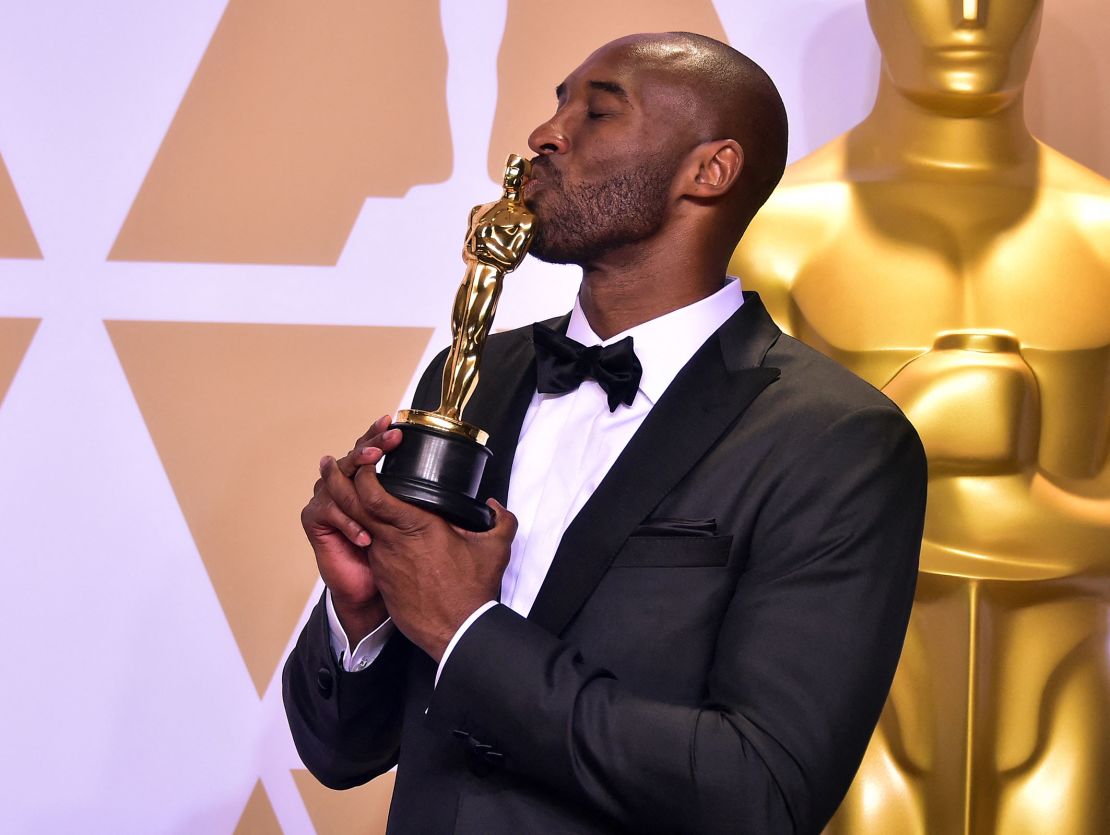
“Dear Basketball” won an Oscar at the 2018 Academy Awards, less than two years after Bryant had played his final game in the NBA. The recognition did, however, draw controversy amid the #MeToo movement and the sexual assault charge brought against Bryant in 2003.
At the time of the case, Bryant admitted to adultery with a 19-year-old resort hotel worker in Colorado but denied the rape allegations, always maintaining that the encounter was consensual. The criminal sexual assault charge was dropped a year later after the accuser phoned the district attorney to say she no longer wanted to proceed with the case, instead focusing on a civil suit against Bryant, which was settled privately in March 2005 and the terms of the which have not been disclosed.
Despite renewed focus on the historical allegation, Bryant’s nomination was not rescinded and he ultimately went up on stage to collect the award, thanking his wife and daughters in the acceptance speech he gave alongside Keane.
“Dear Basketball” formed one of many creative projects that Bryant undertook in the second chapter of his career, an Oscar and Emmy-winning production within a burgeoning body of work.
He also founded Granity Studios, a multimedia sports content company through which he developed films, TV shows, books and podcasts. That included “The Wizenard Series,” a collection of sports fantasy books for children, and “The Punies,” a podcast about a group of sports-playing neighborhood friends.
But beyond Byrant’s creative endeavors – and perhaps more significantly – was his commitment to his daughter Gianna’s basketball career.
Gianna, or Gigi, was only 13 when she died alongside her father and seven others in a helicopter crash five years ago. She had already established herself as a promising young basketball player, with the hope that she would go on to play for the UConn Huskies and then in the WNBA.
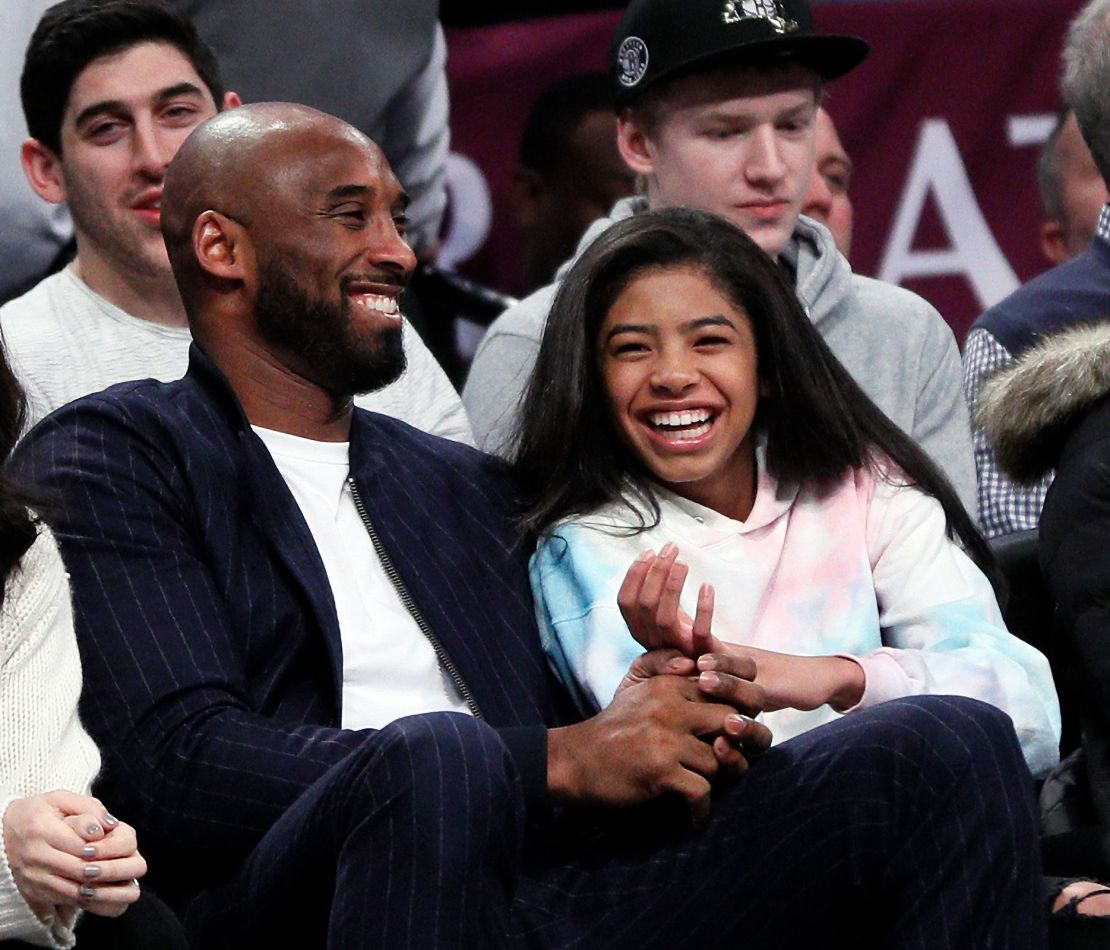
Bryant, who renewed his love for the game in coaching Gigi and her teammates, had already christened his daughter “Mambacita.”
“Kobe’s like, ‘I’m done playing. I can give Gigi my all in this,’” says Jackson, adding: “That enhanced his engagement for college basketball, that enhanced his engagement for women’s college basketball, that enhanced his engagement for the WNBA, that enhanced his engagement for women’s basketball in other parts of the world because he was seeing eventually where he felt his daughter was going to play.”
And that’s not to say that Bryant completely cut ties with the NBA after his retirement. He continued to mentor players in the league, forming relationships with, among others, Kyrie Irving, Jayson Tatum, Devin Booker and Anthony Davis – just as the likes of Jerry West and Bill Russell had done with him.
“He was doing his own thing not connected to the NBA, influencing an entire generation of players,” says Jackson. “It was like he was a stealth ninja, really shaping the NBA in a way that we didn’t even know was happening.”
One of the great tragedies of Bryant’s death is that we never got to see how he would continue to operate beyond the world of basketball. There is extreme sadness, too, in Gigi never discovering her full potential in the game, her special talent never running its full course.
It’s common in sport for potential to go unrealized, though rarely in such brutal and heartbreaking fashion. But the honors Bryant did receive in his lifetime pay testament to his relentless pursuit of causes about which he cared deeply.
“You asked for my hustle, I gave you my heart,” Bryant wrote in “Dear Basketball” – words he carried with him in all walks of life, during his athletic career and beyond it.


